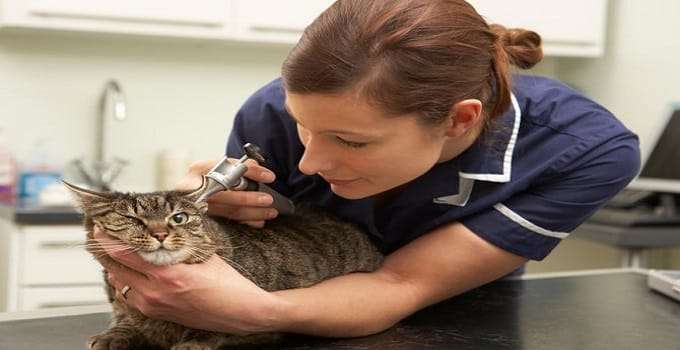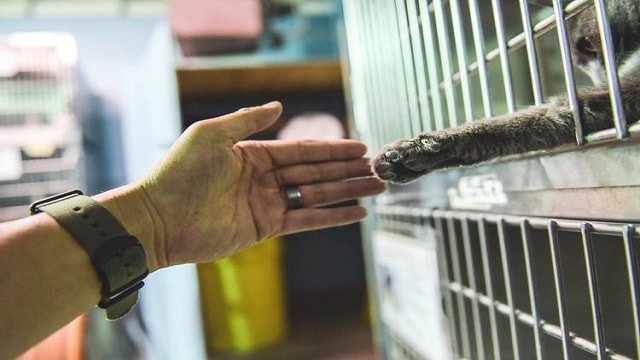In a paper which was published in the journal PLOS ONE, researchers from Kansas State University (KSU) describe their success with an antiviral treatment for FIP which blocks the virus from replicating and halts the progression of the disease.
Cats that received the treatment dodged a near-certain death sentence and then miraculously, returned to normal post-treatment.
FIP occurs in young cats (typically 3 or fewer years old) and is caused by particular strains of an illness which is called feline coronavirus. Most types of feline coronavirus are relatively harmless. And indeed, are common infections – causing mild intestinal inflammation, and if any symptoms at all — a small percentage of them progress through mutation into FIP.
Once the virus has become FIP, the most common result is a “wet” form of the disease, resulting in fluid buildup inside the abdomen, fever, jaundice and weight loss. The condition is very tricky to diagnose and often the symptoms seem to arise out of nowhere, because cats are excellent maskers of how bad they’re feeling.
There is no known cure for FIP, and once these latter symptoms appear death follows in a matter of weeks to months.
Until now, the researchers say, it was not clear whether an antiviral by itself could reverse the FIP’s deadly progress. But their new treatment, they say, has done it.
“This is the first time we showed experimental evidence of successful treatment of laboratory cats at an advanced clinical stage of FIP,” said study lead Yunjeong Kim, who is an associate professor in KSU’s diagnostic medicine and pathobiology department.
“We found that antiviral treatment led to full recovery of cats when treatment was started at a stage of disease that would be otherwise fatal if left untreated,” the scientists noted..
All of the cats in the study made full recoveries and were back to their old selves within 20 days of receiving the antiviral treatment.
The team’s results came from cats whose FIP had been experimentally induced within a laboratory setting, so Kim said the next step will be to test the efficacy of the antiviral in cats that somehow had come by their FIP naturally.










